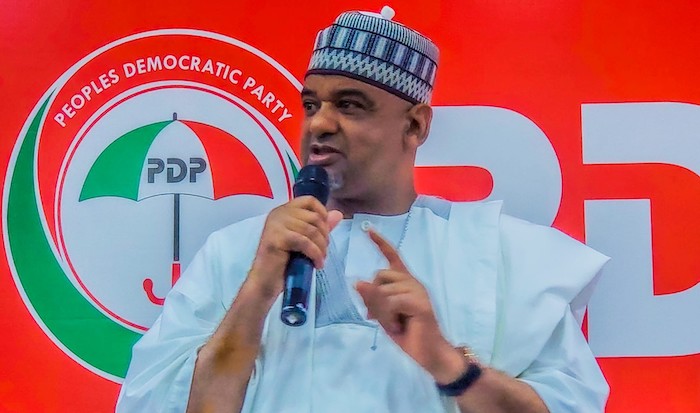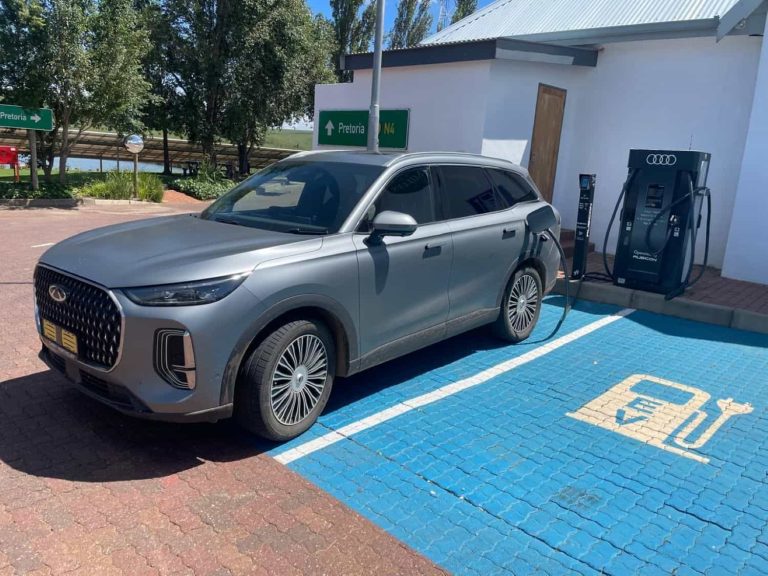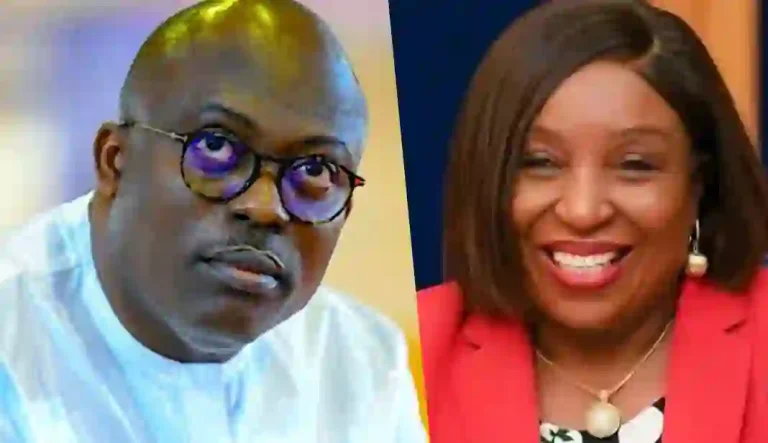
The crisis of confidence rocking Peoples Democratic Party (PDP) took a new dimension on Tuesday at the Federal High Court in Abuja, as National Chairman of the party, Ambassador Umar Iliya Damagum, and National Legal Adviser, Kamaldeen Ajibade, openly disagreed in court.
At the hearing of a suit seeking to stop the planned National Convention of the party, instituted by three aggrieved members, Damagum and Ajibade battled for several minutes over who had the power to appoint a lawyer to represent the party.
While Damagum, who was physically present in court, in a letter he personally signed, mandated Chris Uche, SAN, to represent PDP in the legal action, Ajibade, a Senior Advocate of Nigeria (SAN), insisted that he was the only authority
that could appoint legal representation for PDP.
When the matter was called before Justice James Omotosho, Joseph Daudu, SAN, announced appearance for the three plaintiffs, namely, Hon. Austin Nwachukwu (Imo PDP chairman), Hon. Amah Abraham Nnanna (Abia PDP chairman), and Turnah Alabh George (PDP Secretary, South-south).
Trouble, however, started when Uche, with more than five other SANs, announced their appearance for PDP, a move that was immediately countered by Ajibade, who also announced his appearance for the party.
In the drama that ensued, Uche informed
Omotosho that he had a letter from the PDP national chairman appointing him to represent the party in the suit. Ajibade replied that he was the sole authority vested with power by the PDP constitution to appoint legal representation for the party and cited some judgements to that effect.
Visibly taken aback by the development, Omotosho stood down the hearing of the matter for 10 minutes for the national chairman and the national legal adviser to go out of the court to put their house in order.
After the 10 minutes, the two parties reported that they were unable to reconcile on legal representation, prompting Uche to seek a short adjournment to enable Damagum and Ajibade to reconcile their differences. At this point, Daudu, who stood for the plaintiffs, pleaded with the judge to go ahead with the hearing of his client’s matter if, on the adjourned date, the two parties were unable to resolve their differences.
Omotosho subsequently fixed Thursday, October 16 for hearing of the matter.
At on Tuesday proceedings, Omotosho joined Damagum, Ali Odef, and Chief Emmanuel Ogidi as the 7th, 8th, and 9th defendants in the suit marked FHC/ABJ/CS/2120/2025.
They were joined in two separate applications argued by their respective lawyers, Paul Erokoro and Audu Anuga, both SANs.
Erokoro, while arguing for Damagum’s joining, informed the court that he was a necessary party on account of his being National Chairman of PDP, Chairman of the National Working Committee (NWC), Chairman of the National Executive Committee (NEC), as well as Chairman of the convention committee.
Anuga, in his submission on joinder for Ali Odef and Emmanuel Ogidi, informed the court that the two were officers of PDP, who would be affected one way or the other by the outcome of the case.
The joinders’ request was vehemently opposed by the counsel to the three plaintiffs, Daudu, who urged the court to discountenance the request.
Daudu argued that the three plaintiffs did not seek any relief against those seeking to be joined, adding that their request for joinder, and if joined, would serve no purpose.
In his brief ruling, Omotosho said he had considered the status of Damagum, Odef, and Ogidi and found them to be necessary parties that would be affected one way or the other by the outcome of the case.
The judge then granted their request and ordered the three plaintiffs to make them the 7th, 8th, and 9th defendants.
The judge also ordered the plaintiffs to effect consequential amendments for the names of the three people to reflect in the processes that would be filed in respect of the matter.


